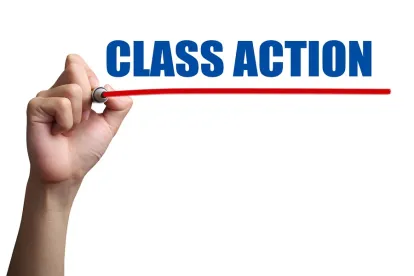The D.C. Circuit avoided taking a side in the widening circuit split over the evidentiary standards applicable to expert testimony at the class certification stage. In In re Rail Freight Fuel Surcharge Antitrust Litig. - MDL No. 1869, 934 F.3d 619 (D.C. Cir. 2019), the court declined to formally adopt a position on whether Daubert applies to expert testimony at the class certification stage. While the panel stated that a critical analysis of an expert’s model may be applicable at the class certification stage, it expressly declined to formally decide whether the expert testimony must be admissible. Id. at 623.
Notably, though not addressing whether a full Daubert analysis applies, the D.C. Circuit held that the class expert’s regression analysis for proving causation, injury, and damages on a classwide basis, even if sufficiently reliable, did not prove damages for all class members. Instead, the proposed model measured negative damages for over 2,000 members of the proposed class. This lack of uniformity—with over 12% of the class unaccounted for—failed to satisfy Rule 23’s predominance requirement because common questions could not “predominate where there exists no reliable means of proving classwide injury in fact.” Without proffering another model to account for injuries on a classwide basis, the class could not stand.
In contrast to the D.C. Circuit’s avoidance of the admissibility standard for experts at the class certification stage, last year we reported that the 9th Circuit held that expert evidence offered in support of class certification need not be admissible at trial. The Ninth Circuit in Sali v. Corona Regional Medical Center, 889 F.3d 623 (9th Cir. 2018), reasoned that “[a]pplying the formal strictures of trial to such an early stage of litigation makes little common sense. Because a class certification decision is far from a conclusive judgment on the merits of the case, it is of necessity[ ] not accompanied by the traditional rules and procedure applicable to civil trials.” The Ninth Circuit represents the minority position on this issue, joined only by the Eighth Circuit. The Second, Third, Fifth, Seventh, and Eleventh Circuits subject class certification expert evidence to more rigorous scrutiny.
Supreme Court guidance suggests that the Court may be in favor of applying Daubert at the class certification stage, but it has not definitively ruled on the issue. Wal-Mart Stores, Inc. v. Dukes, 131 S. Ct. 2541, 2553-54 (2011) (“The District Court concluded that Daubert did not apply to expert testimony at the certification stage of class-action proceedings. We doubt that is so … .” (internal citation omitted). Given the existing circuit split, until this issue is resolved by the Supreme Court, clients, counsel, and the court should thoughtfully consider their ability to dispute proffered expert models at class certification.




 />i
/>i

